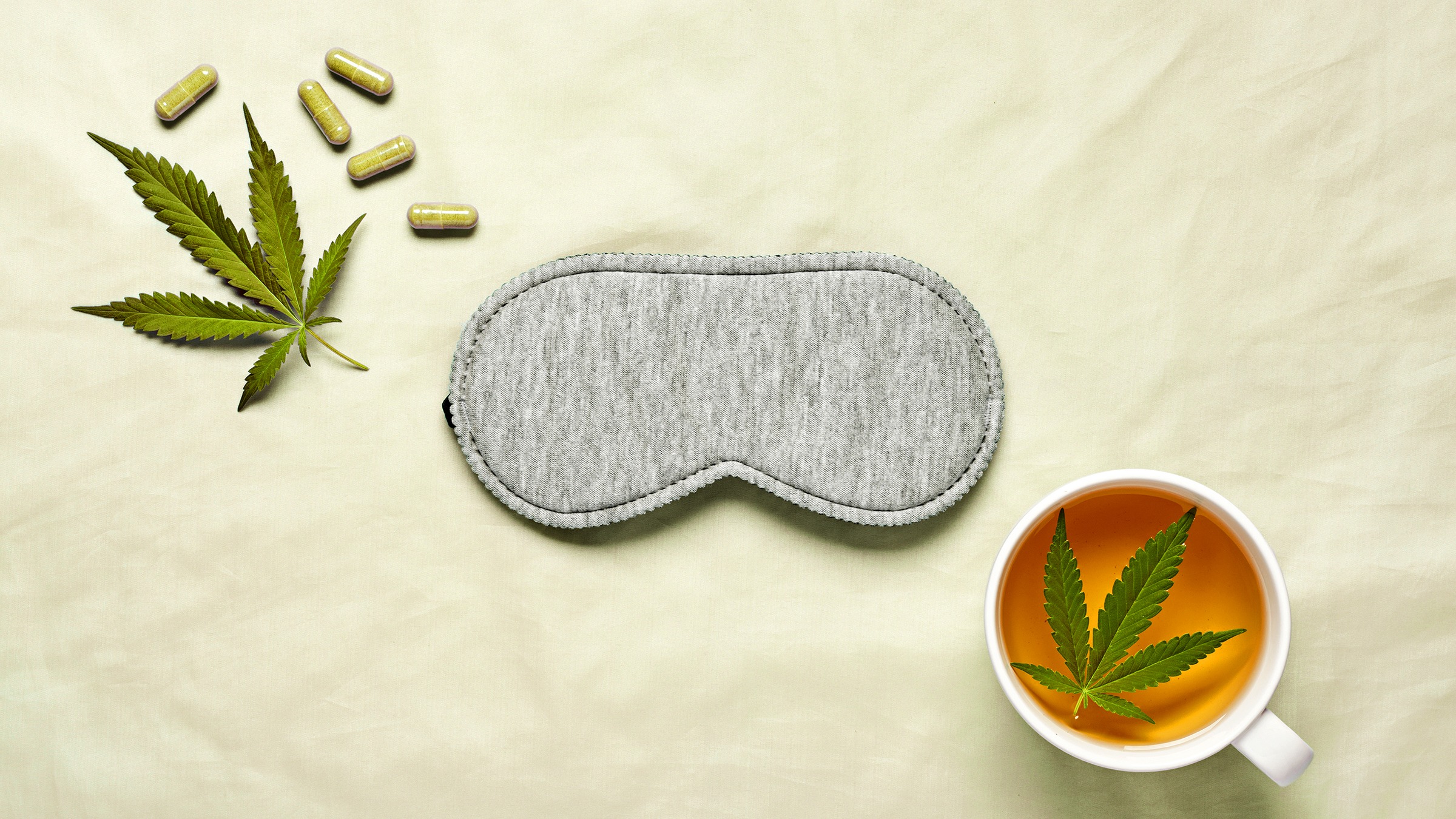- Daily cannabis use was associated with better sleep for people with insomnia in a recent study.
- Participants also noted reductions in anxiety, depression, and pain.
- Improvements in insomnia persisted through the 18-month study, though the magnitude lessened over time.
- Specialists warn that tolerance might limit cannabis’s long-term usefulness as a sleep aid and point to other health risks from prolonged use.
People diagnosed with insomnia experienced improved sleep when using cannabis regularly, according to new research.

Authors report that study participants had reduced insomnia symptoms when consuming cannabis products daily across the 18-month follow-up. The study was published on August 27 in PLOS Mental Health.
Estimates of how many people struggle with sleep vary; the study cites about 10%, while other sources place the figure as high as 30%.
Poor sleep over long periods can raise the risk of cardiovascular disease and contribute to psychiatric and cognitive difficulties.
There are effective medical treatments for insomnia, but many come with unwanted side effects and the risk of dependence.
Because of this, the effects of tetrahydrocannabinol (THC), the principal psychoactive compound in cannabis, have drawn growing research interest.
Cannabis studied as a sleep aid
For the study, researchers enrolled individuals diagnosed with primary insomnia who were registered in the UK Medical Cannabis Registry. The final analysis included 124 participants aged 18 and older.
Each person received an identical regulated daily dose of cannabis provided by the study team.
Cannabis was taken as an oil, dried flower, or a combination of both. Participants were not permitted to use outside cannabis during the trial.
Eleven participants reported a total of 112 adverse events — such as fatigue, dry mouth, and worsened insomnia — though none were classified as disabling or life-threatening.
By the study’s end at 18 months, participants still indicated cannabis was helping their sleep. The greatest effect was seen in the first month and then gradually declined over the remainder of the study.
Besides sleep improvements, participants also reported reductions in pain and improvements in anxiety and depression symptoms during the trial.
“Cannabis can quiet racing thoughts and help some people fall asleep faster,” said Eliana Bonaguro, LMHC, a therapist in New York City and Florida who specializes in anxiety disorders.
“Many people with anxiety and depression struggle to fall asleep because of intrusive thoughts, and cannabis can provide short-term relief.”
Prior studies on cannabis and sleep have produced mixed results.
The American Academy of Sleep Medicine stated in 2024 that evidence remains insufficient to routinely recommend cannabinoids for insomnia or other sleep disorders, noted Ruchir Patel, MD, medical director of the Insomnia and Sleep Institute of Arizona.
He told Healthline that cognitive behavioral therapy (CBT) continues to be the first-line treatment for insomnia.
Benefits may diminish with continued use
The trial tracked participants over 18 months, but it remains uncertain whether cannabis is an effective long-term sleep therapy.
The researchers highlight tolerance as a possible challenge: over time, the body may require higher doses to achieve the same effects.
They propose that the waning effectiveness observed in the study likely reflects increasing tolerance among participants.
“Evidence indicates regular medical cannabis use is associated with higher consumption over time, increasing the risk of tolerance and dependence,” Patel said.
Bonaguro pointed out that cannabis can create a cycle: “It provides short-term relief for anxiety or depression, but with prolonged use tolerance builds, dependency can form, and mood and sleep may deteriorate.”
Are the risks of long-term cannabis use acceptable?
The study examined daily cannabis consumption for insomnia, and Patel emphasized that frequent use carries side effects.
Heavy cannabis use has been connected to several negative health outcomes, including a greater risk of cardiovascular disease.
Regular cannabis use also raises the chance of developing a dependence or cannabis use disorder.
Still, as a 2021 review observed, cannabis may be comparatively safer and better tolerated than some other drugs, such as opioids, and any benefits need to be weighed against the risk of dependence.
The review also notes that for some chronic conditions the therapeutic advantages of cannabis might outweigh risks like tolerance or dependence, underscoring the need for medicines with strong safety profiles.
Regarding sleep specifically, cannabis may disrupt certain sleep stages for some people. Some research indicates cannabis can alter slow-wave (N3) sleep and may fragment REM and deep sleep.
“A common complaint from clients who use cannabis regularly or intermittently is that they don’t remember their dreams,” Bonaguro said. “That aligns with evidence showing THC suppresses REM sleep, the stage when most dreaming happens.”
Patel added that chronic cannabis use has been associated with psychiatric issues in vulnerable individuals.
Moreover, daily cannabis can interact negatively with medications often prescribed for anxiety, such as selective serotonin reuptake inhibitors (SSRIs), and with antiepileptic drugs.
The study authors close by voicing their own reservations.
They observe that the likelihood of tolerance developing among people with insomnia may curtail cannabis’s usefulness as a long-term treatment, despite its apparent success during the relatively brief follow-up.
Nonetheless, they argue those positive results justify conducting further randomized controlled trials to better evaluate cannabis as a treatment for insomnia.


















Leave a Reply
You must be logged in to post a comment.